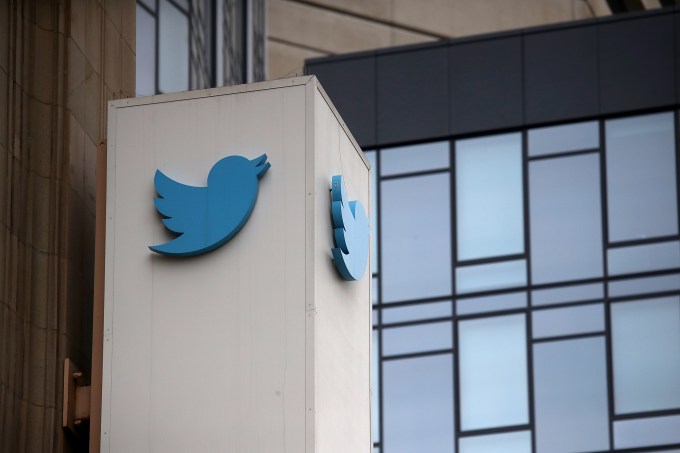
Hey everyone. Thank you for welcoming me into you inbox yet again.
I got some awesome responses to the #DeleteLinkedIn newsletter last week, a few dozen emails (some of them angry) and plenty of tweets. Looking forward to chatting with some of you soon. On that note, I’m currently in China for a TechCrunch event that we’re having in Shenzhen and will be taking some time offline to travel a bit so I won’t be arriving in your inboxes the next two weeks. Week in Review will be back in your inboxes the weekend after Thanksgiving so you’ll have to savor this newsletter until then.
If you’re reading this on the TechCrunch site, you can get this in your inbox here, and follow my tweets here.
The big story
If there’s been a collective theme to some of the tech backlash of the past couple years, it’s been an evolving vision towards platform responsibility.
Social media platforms have earned the lion’s share of this discussion to date. This has largely been due to the political landscape and gripes with both liberals and conservatives for how the site handles content policing. The prevailing libertarian view that tech platforms weren’t responsible for what was enabled by their platforms has fallen out of vogue.
What continues to surprise me is how little accountability or expectations there still seems to be for marketplace platforms. Speech is a crucial part of the internet, but so is buying and selling and it shocks me how big some startups have been able to get without delivering some basic buyer protections.
http://www.twitter.com/lucasmtny/1190027153099952128?s=20
Through some great investigations from the Wall Street Journal, we’ve seen how fast and loose Amazon has been playing with third-party sellers getting free reign on the site. There have been countless stories of scammers infiltrating sites like Airbnb and eBay and operating in grey areas that allow them to rip off buyers. Last week, a reporter at Vice delivered a scathing deep dive into a scam she fell victim to on Airbnb’s platform.
This week, Airbnb announced that by next year they are pledging to verify all of their listings, something that seems more than a little overdue. Standing behind the properties being booked on their platform was seemingly the last box to check before driving to the IPO hoop.
More from our story:
Airbnb properties will soon be verified for accuracy of photos, addresses, listing details, cleanliness, safety and basic home amenities, according to a company-wide email sent by Airbnb co-founder and chief executive officer Brian Chesky on Wednesday.
Airbnb is just another highly valued startup that has been trying to take the past of least resistance to outsized future value. Verifying properties is a difficult issue to brace. Sellers are certainly not the only scammers on Airbnb, and buyers abusing this new system is a guarantee. But keeping both sides in some sort of satisfaction equilibrium is Airbnb’s messy, god-given task.
Airbnb has garnered more grumblings than most due to bad customer experiences, but it’s just a harbinger of what comes next. 2020 being a presidential election year in the U.S. means that the public might still be too busy with lambasting Zuckerberg to give marketplaces their due watchful eye in the near term, but the bell is tolling for these marketplaces and it’d be wise for them to pay attention to the writing on the wall.
Send me feedback
on Twitter @lucasmtny or email
lucas@techcrunch.com
On to the rest of the week’s news.

(Photo by Justin Sullivan/Getty Images)
Trends of the week
Here are a few big news items from big companies, with green links to all the sweet, sweet added context:
- Twitter’s Saudi Arabian infiltration
One of the wilder stories this week was how Saudi Arabia reportedly lifted sensitive contact info from Twitter via employees at the company that they paid off. There’s a lot in this saga and while Twitter seems to have done most things right, it is a pretty nightmarish scenario. - T-Mobile and Sprint get hitched
The telecom marriage of two of the United States top four carriers cleared its last major hurdle as the FCC gave the deal its blessing. There’s still some residual legal hurdles for the two to wrap up in good faith, but this deal is done. - Adobe makes good on a promise
The promises of tablet computing have always been a little ambitious in terms of timing, but Photoshop is finally arriving on the iPad and with that, one decade-long wish list item has been realized.
GAFA Gaffes
How did the top tech companies screw up this week? This clearly needs its own section, in order of badness:
- California isn’t happy with Zuckerberg:
[California accuses Facebook of ignoring subpoenas in state’s Cambridge Analytica investigation] - Google’s board is investigating some executive impropriety:
[Alphabet’s board is investigating execs over claims of sexual harassment and other misconduct]
Disrupt Berlin

It’s hard to believe it’s already that time of the year again, but we just announced the agenda for Disrupt Berlin and we’ve got some all-stars making their way to the stage. I’ll be there this year, get some tickets and come say hey!
Sign up for more newsletters in your inbox (including this one) here.


